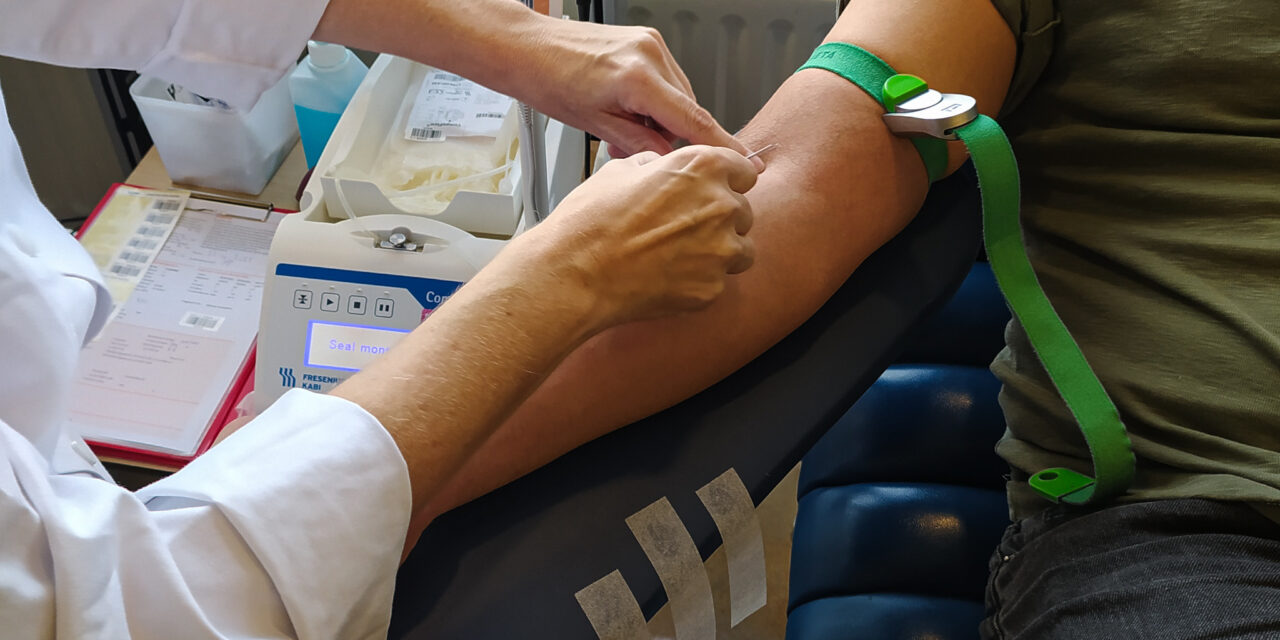Not being able to donate your blood because of your sexuality. It may sound strange but even in 2021 there are still different rules for gay and bisexual men then there are for heterosexual men who want to donate their blood. In September 2021 the rules have been relaxed in the Netherlands even though these are still stricter for men who have sex with men than for heterosexual men. Quite weird if you think about it, especially when there are other European countries who do not discriminate based on the sexual preference of their donors.
Men who have sex with men tend to have a potentially higher risk of contracting HIV and AIDS. Because of this, Sanquin decided to exclude all men who have had sex with men (MSM.) In 2015 the College for Human Rights judged that this selection procedure was discriminating. In 2015 Sanquin changed their rules, from a lifetime ban to a deferral period for a year, to a deferral of 4 months. Since September it is allowed for men who have a stable relationship with another man for a year or longer to donate as well. Philip Tijsma, spokesperson of the COC, says he rather sees that Sanquin looks at individual risk behaviour instead of excluding MSM as a whole group.
Different approaches
The United Kingdom has a different approach of MSM for donating blood. Instead of excluding all MSM they look at the individual risks of peoples sexual behaviour. Regardless of their gender, anyone who had anal sex with a new partner(s) in the last three months is not allowed to donate for three months. This also applies to woman. Italy, for example, is asking their donors about individual risks since 2001. Italian donors have an confidential face-to-face conversation and a questionnaire about their sexual behaviour. The outcome of the conversation and the questionnaire decides if Italian donors are admissible, inadmissible for 4 months or are inadmissible for the rest of their life.
There are countries around the world without a deferral period. Hungary and Russia do not have stricter rules for MSM than for heterosexual men even tough these are not known as the LQBTQ+ friendliest countries. On the other hand, there are countries with a deferral period for 5 year (Taiwan) a deferral of 1 year (Germany and Belgium for example) a deferral period for 4 months (France, Finland and Austria.)
Greece, Singapore, Croatia, Iceland, Singapore and some other countries still have lifelong bans for gay and bisexual men for donating their blood.
COVID changes the blood donation
Different countries struggled during the COVID pandemic to keep the blood supply stocks on the right level. As a result of this, the FDA (the organisation in the United States that is responsible for the quality and the blood stock) decided to reduce the deferral from 12 months to three months in April 2020. Tijsma says that the new relaxation of the rules show how odd the rules are and that there are possibilities for men who have sex with other men to donate safely. Tijsma believes that gay and bisexual men want to donate their blood to help others and would understands that people with high-risk behaviour are excluded, but a ban for all MSM is discriminating. HIV and AIDS also occur under heterosexual couples.
12 months to three months in April 2020. Tijsma says that the new relaxation of the rules show how odd the rules are and that there are possibilities for men who have sex with other men to donate safely. Tijsma believes that gay and bisexual men want to donate their blood to help others and would understands that people with high-risk behaviour are excluded, but a ban for all MSM is discriminating. HIV and AIDS also occur under heterosexual couples.
The rules all over the world for MSM are changing. At this point Sanquin is researching for possibility’s to stop the deferral time of four months for MSM and to look at an individual approach instead of excluding the MSM group as a whole.




